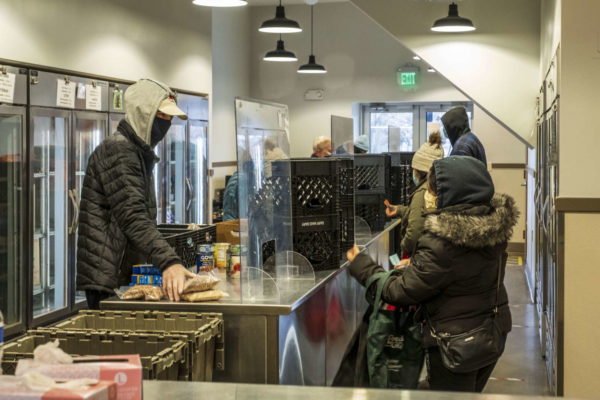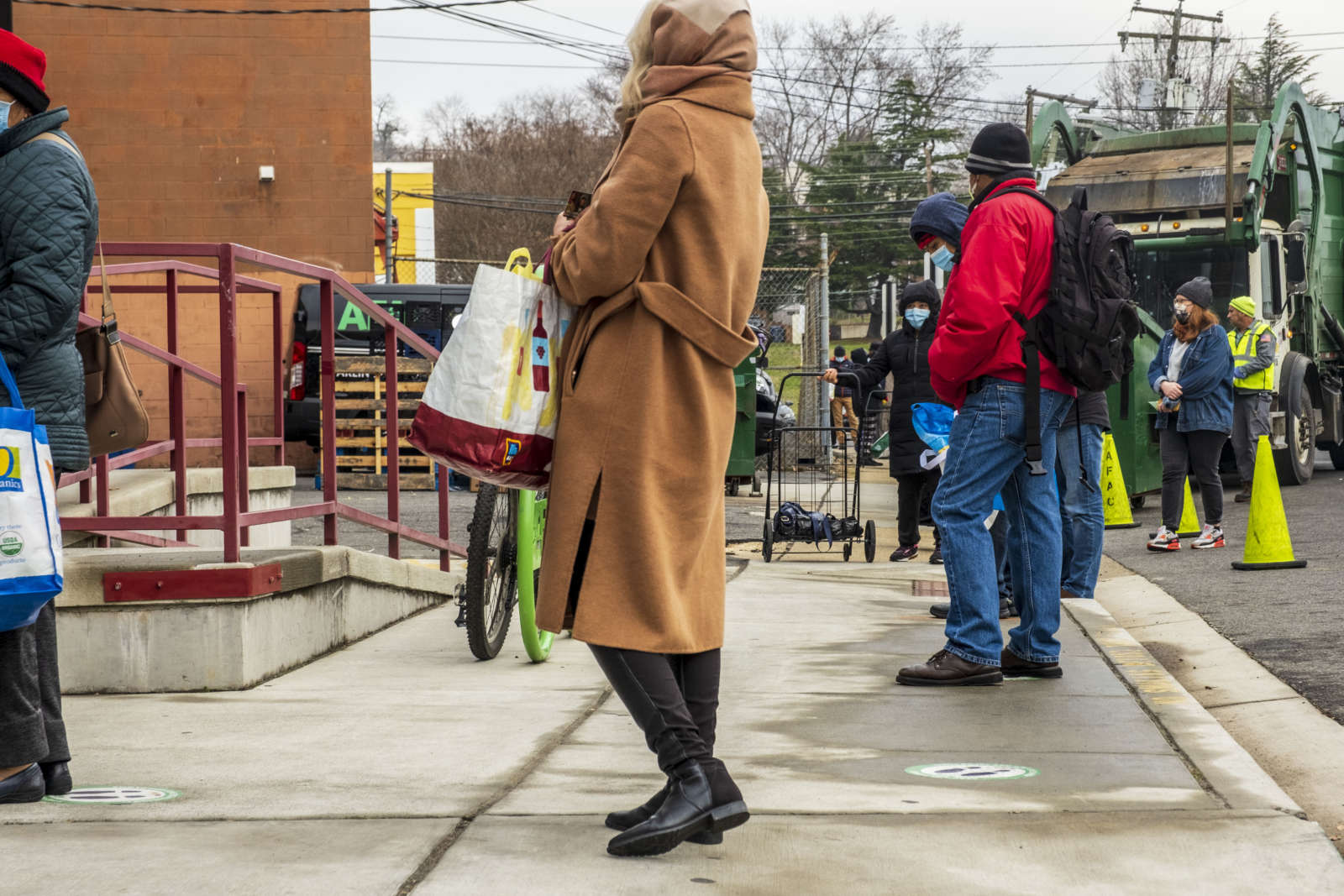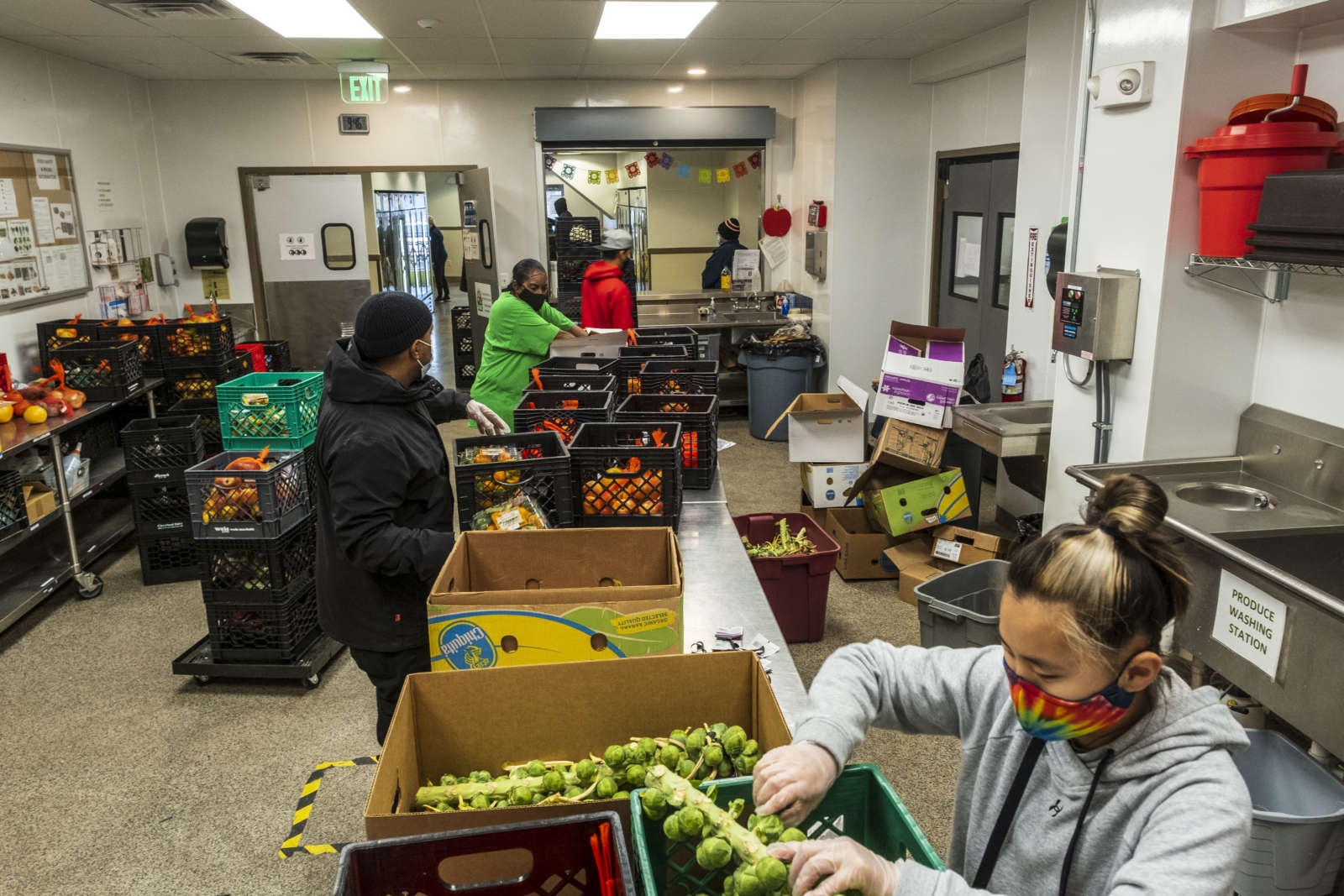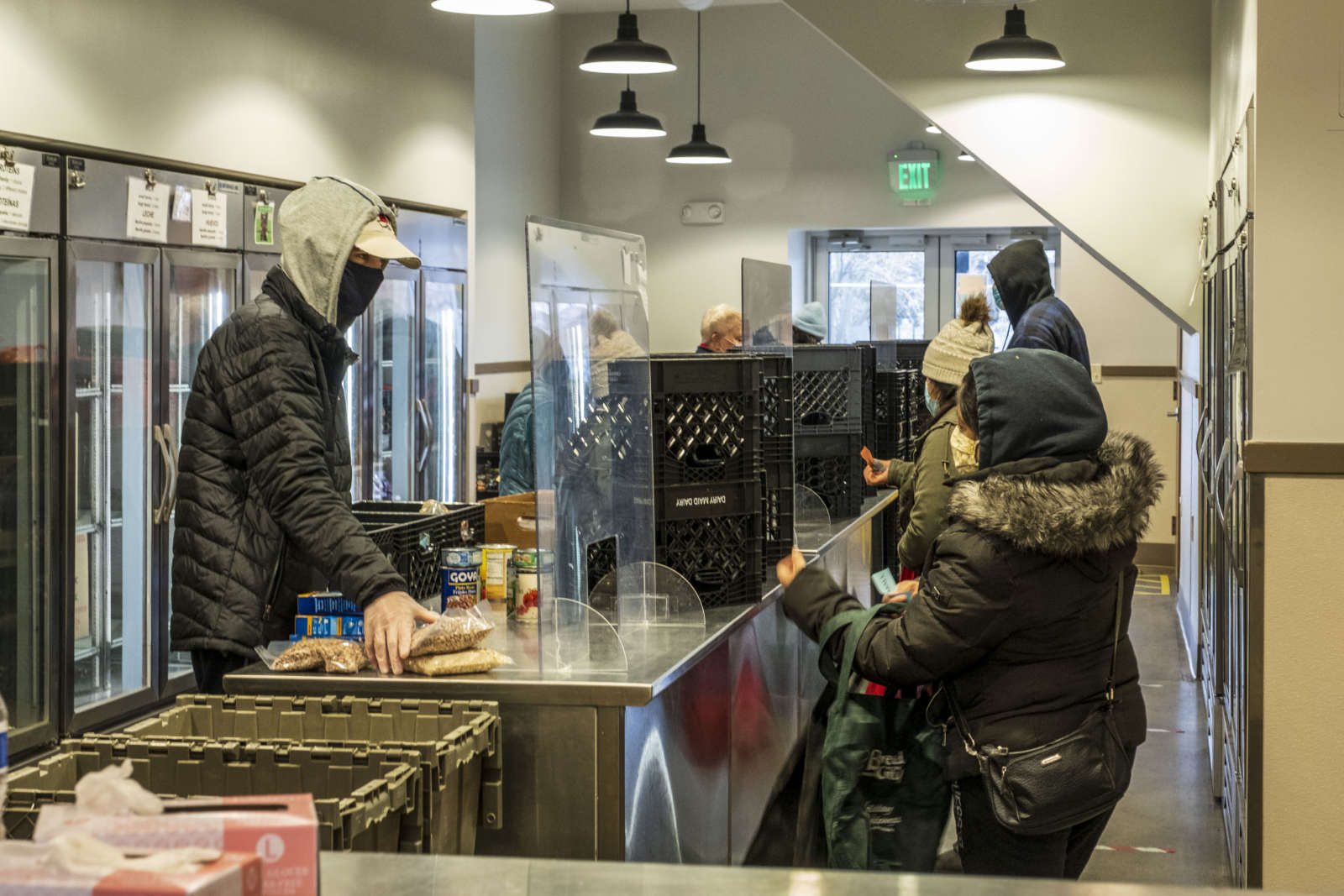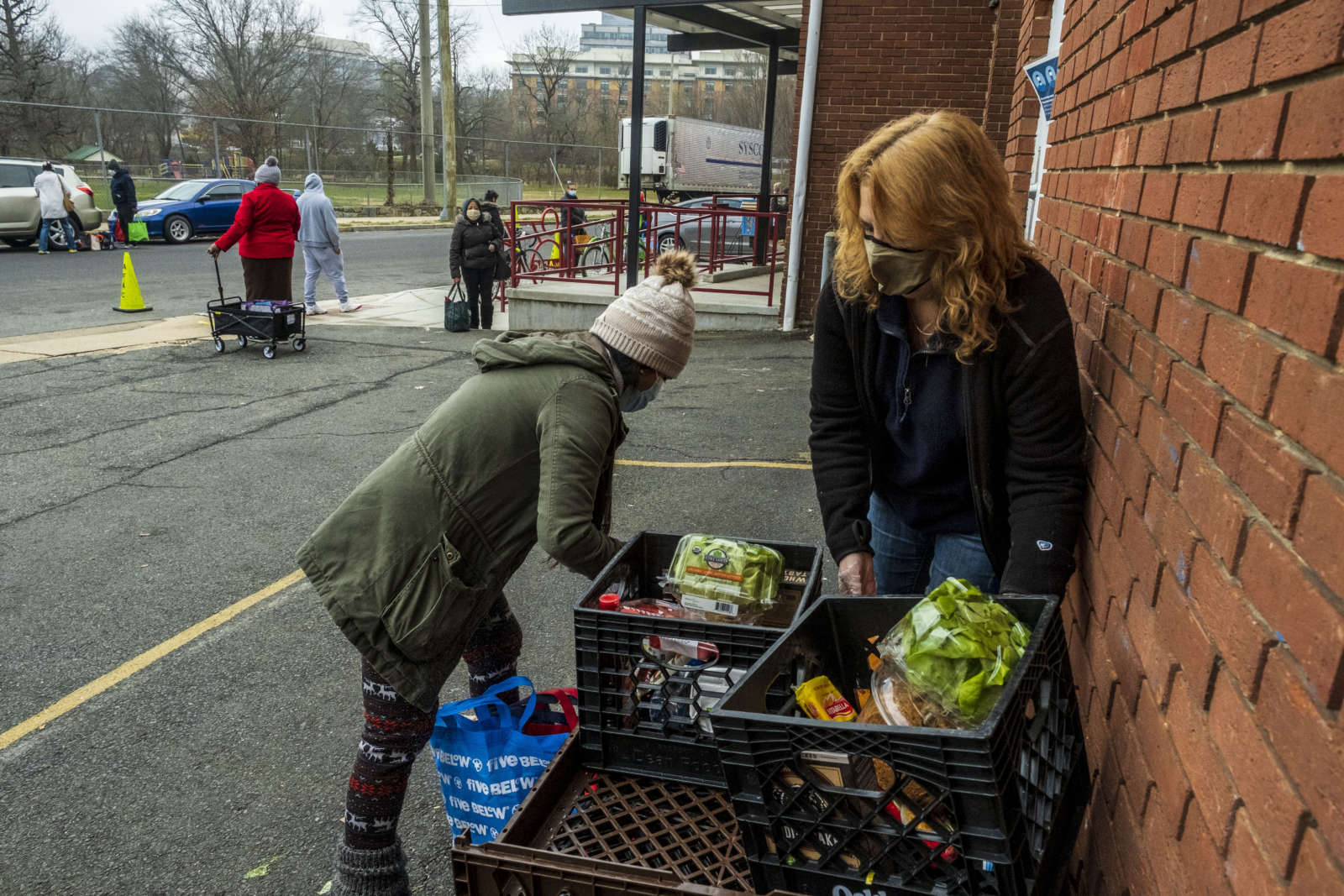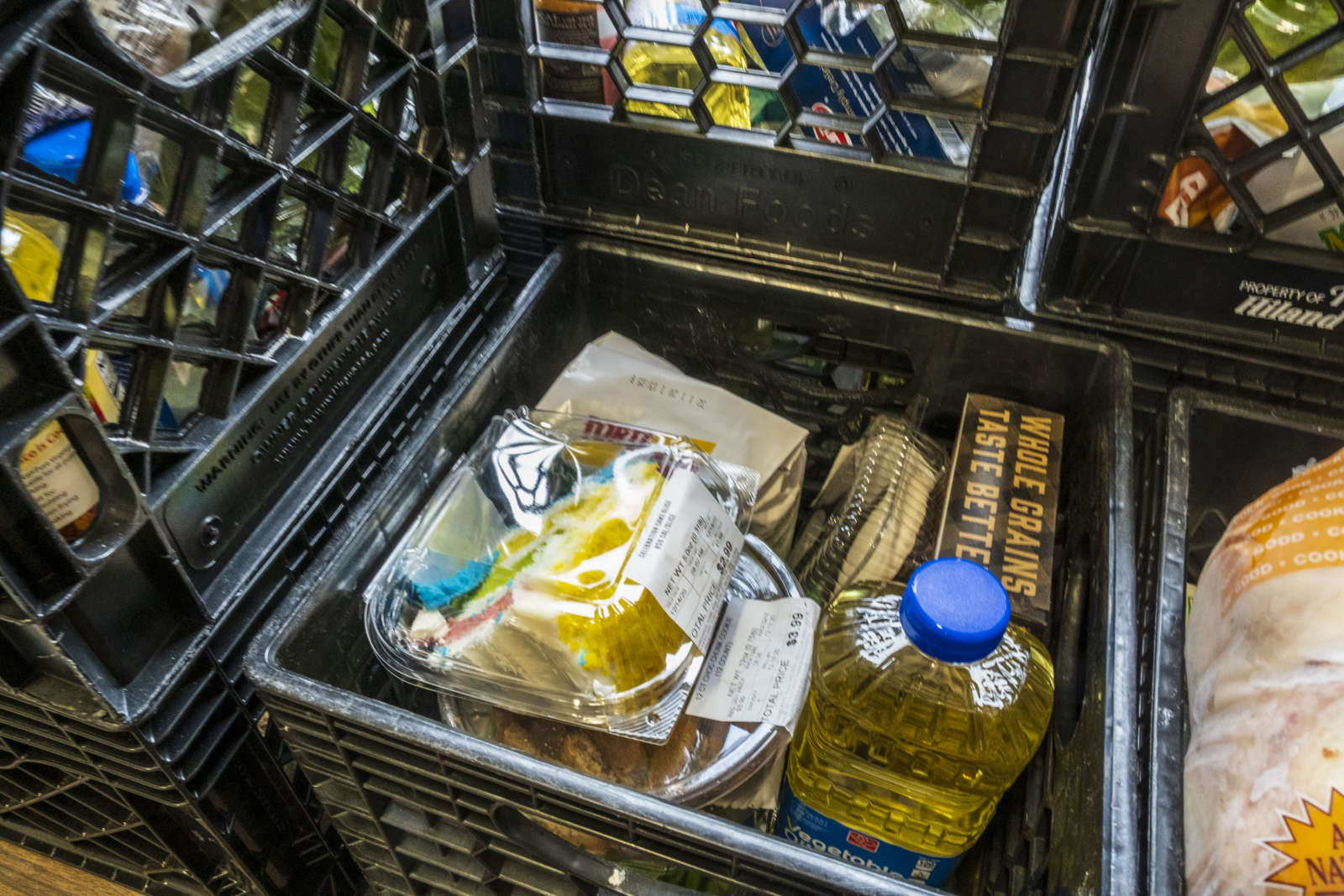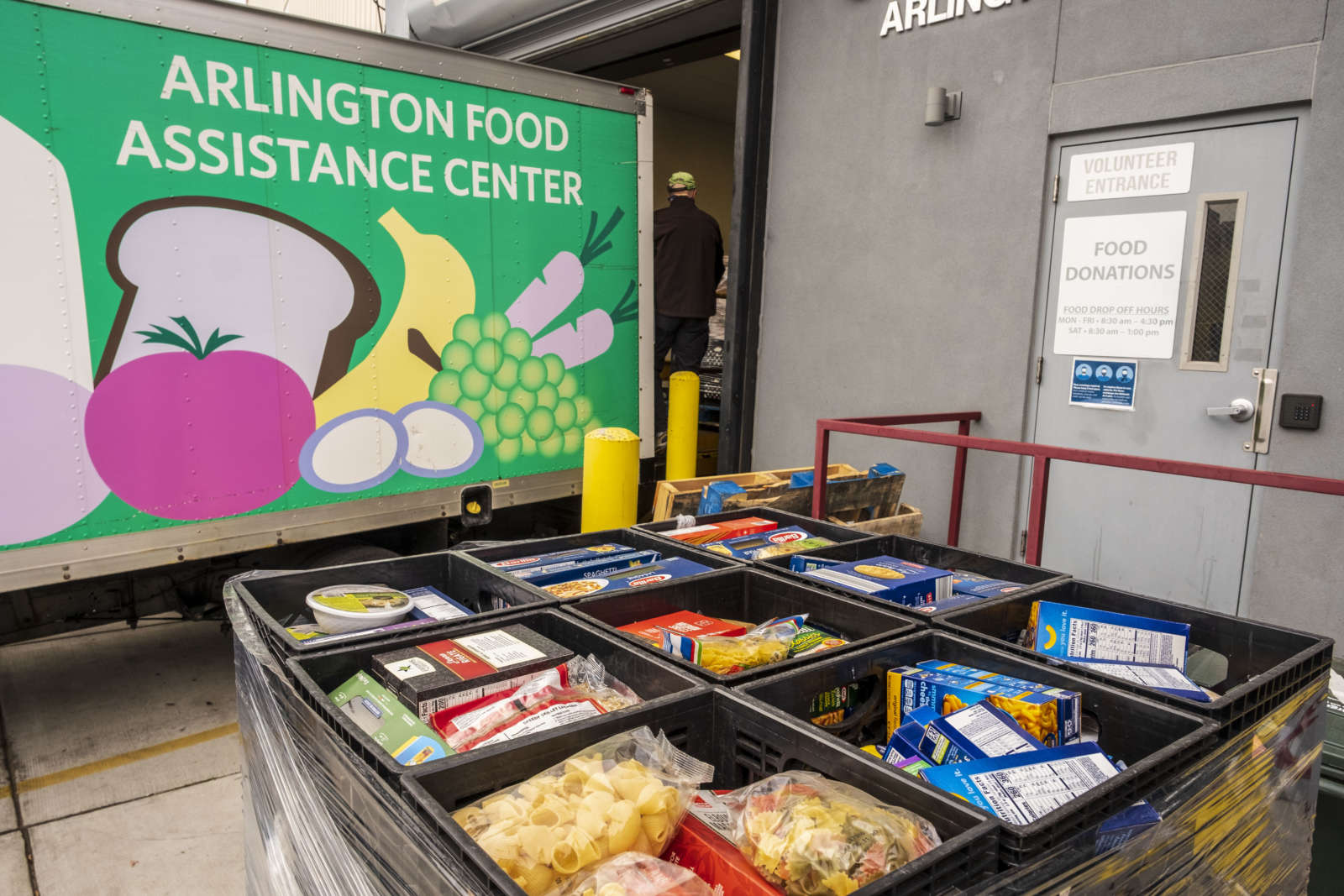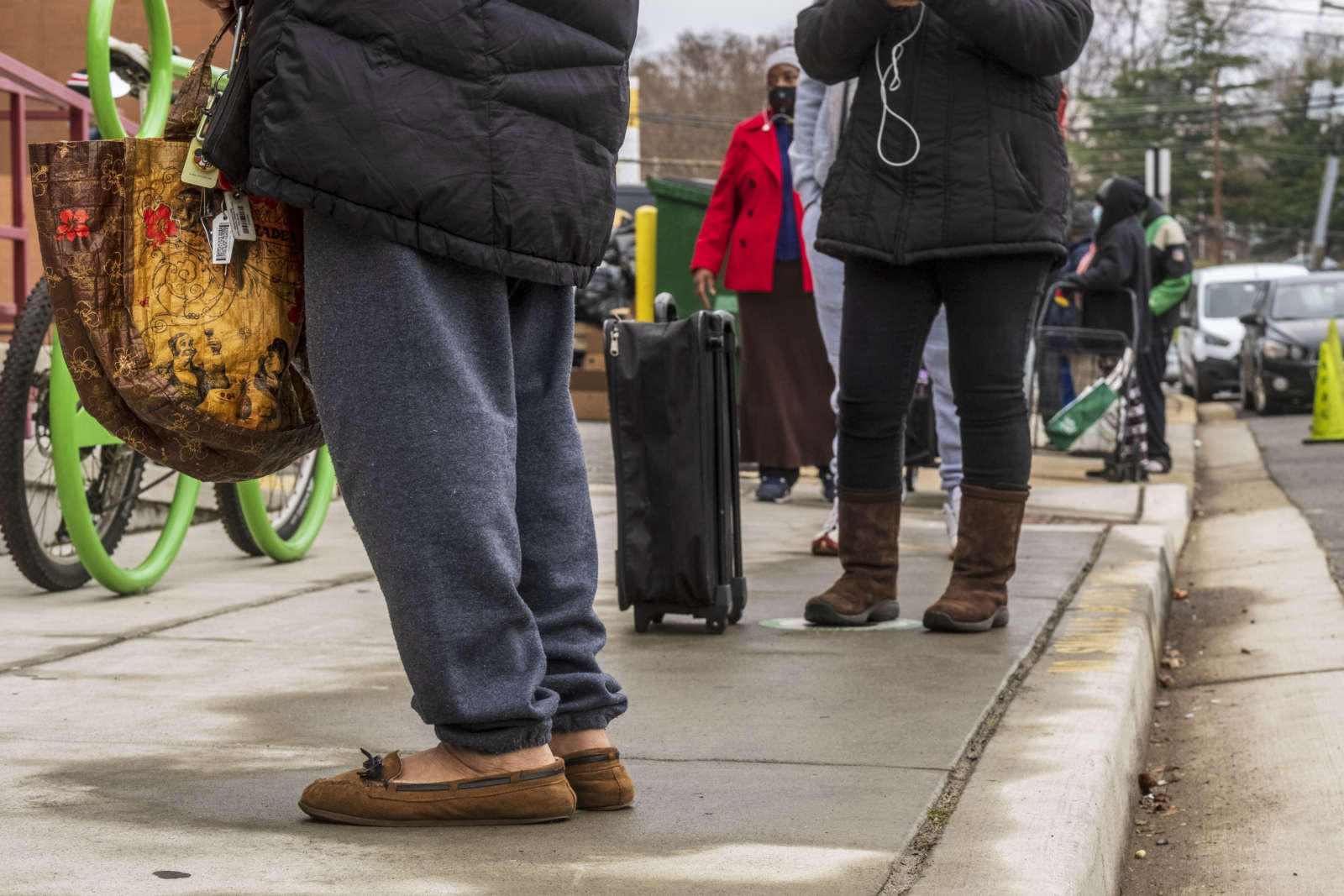As coronavirus cases rise in Arlington County, the number of residents in need of fresh, free food for their families is also increasing.
Executive Director and CEO Charles Meng said the Arlington Food Assistance Center is seeing record-high numbers of visitors each week and month.
“Between October and November, we saw a 9.4% increase, serving 3,440 families at some point during the month,” Meng said in an email. “(We) responded to 11,255 visits for food during the month, with many families having to visit multiple weeks during the month.”
This morning (Monday), families lined up at AFAC to receive a Christmas special — a whole frozen chicken — as well as fresh veggies, desserts, milk and eggs. Volunteers split time de-stalking Brussels sprouts and briskly moving families through the line.
AFAC has seen people coming more frequently for food during the pandemic, likely because personal budgets that could pay for part of a family’s food needs are now slimmer or non-existent, according to Meng. He added that there has also been an uptick in people coming to AFAC for the first time.
“Many of our families are service workers at hotels, restaurants and airports — the hardest hit during the pandemic,” Meng said. “We are seeing the families who would normally access our services come more often and the new families are more regularly coming for needed food.”
The number of clients served by AFAC last peaked in August, with the organization serving 3,364 over the course of the month. When the pandemic started, the number of families being referred to AFAC jumped by 45%, Meng told MSNBC earlier this month.
The demand for food at AFAC has attracted both national and international media attention, with a BBC reporter visiting the organization’s distribution center near Shirlington last week.
They’re getting extra chicken for Christmas at this food pantry in Virginia. Without food assistance, millions of American families would have nothing to eat this holiday season. Our report soon on @BBCWorld pic.twitter.com/cVX4H93Ogg
— Larry Madowo (@LarryMadowo) December 16, 2020
The rise in demand locally tracks with trends seen nationwide.
An Associated Press analysis of Feeding America data from 181 food banks in its network found the organization has distributed nearly 57 percent more food in the third quarter of the year, compared with the same period in 2019.
Food and financial donations are enough to keep up with demand, but as numbers continue to increase, Meng told ARLnow more help will be needed.
“We have sufficient supplies to address our needs for the foreseeable future,” he said. “Financial donations have also been good, but with increasing numbers we need all (the money) that people can spare.”
The annual Boy Scout food drive, which usually brings in 50,000 pounds, was cancelled, but several scout groups still came through with smaller-scale drives, bringing in 36,000 pounds, he said.
Donations from grocery stores are about level with last year, and individual donations have been “very strong,” he said.
Nationwide, food banks are seeing fewer volunteers during the pandemic, NPR reports. In some cases, the usual group of volunteers includes older people, who are staying home due to protect themselves from the coronavirus.
AFAC also runs on the work of volunteers, who Meng commended for making sure the food bank handles the increase in visits despite the danger posed by the pandemic.
“Distributing food is one of the things we do well,” he told ARLnow. “We have a dedicated cadre of volunteers who have stepped up to help — they are the real heroes of AFAC.”


